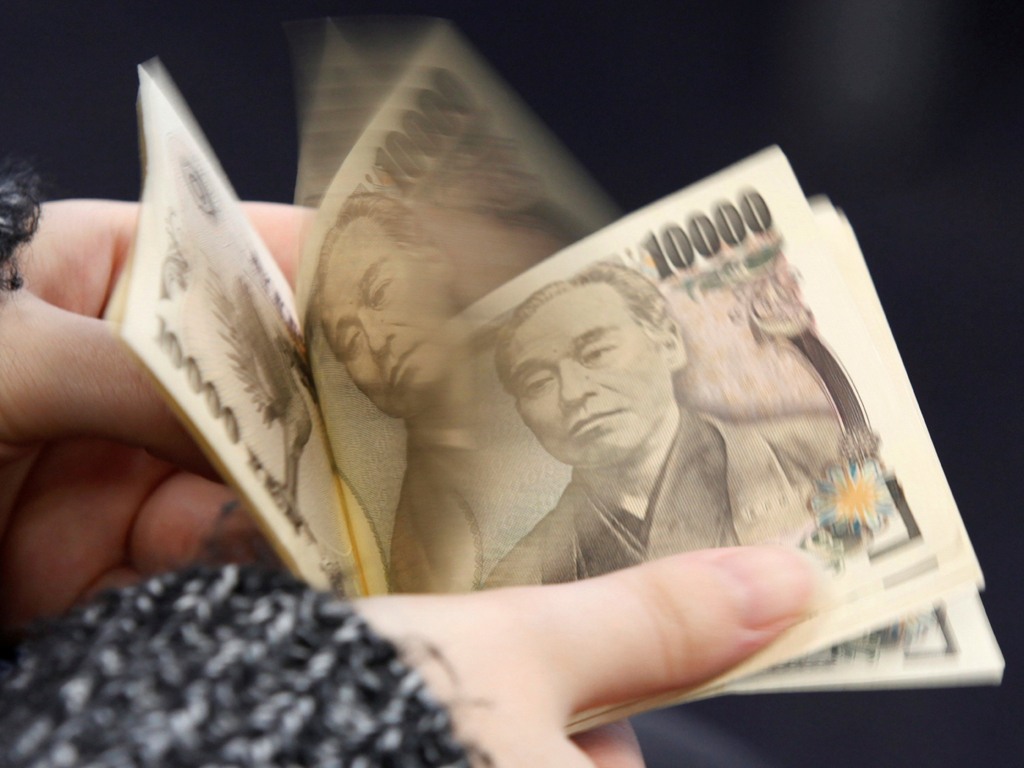A falling yen may not be the economic cure Japan seeks

Fallout from the coronavirus outbreak may finally lift the curse of the safe-haven yen for Japan but policymakers fear fiscal laxity could lead to a currency free-fall eventually, undermining efforts to cushion the economy from the pandemic.
The yen, which investors typically snap up as a safe haven in times of financial market stress, fell nearly 10% against the dollar this month, as pandemic fears spurred a stampede into the refuge of the world's most powerful currency.
For Japanese policymakers who have repeatedly fought in recent decades to tamp down the currency as its strength hurts the country's export-reliant economy, that move could be problematic against the backdrop of huge fiscal stimulus.
The Japanese government, like many others around the world, is preparing to open the spending spigots to cushion the blow from the coronavirus, inflating an already bloated public debt with spending of at least $137 billion.
Finance ministry officials say the government will be forced to issue more bonds to foot the bill. Already, Japan plans to sell 153.5 trillion yen ($1.38 trillion) of bonds in the year beginning April to help pay for rising social welfare costs.
Some officials warn the further unraveling of fiscal discipline in Japan, which has the heaviest debt burden in the industrial world, could sow the seed of a run on Japanese assets and erode the yen's value in the long-run.
"A strong yen is a problem, but now we're more worried about a weakening of the yen. If we do something wrong (in managing our finances), that could cause a yen free fall," said a senior finance ministry official.
"If we end up issuing huge amounts of debt, market sentiment could change abruptly. That would be problematic," he said on condition of anonymity due to the sensitivity of the matter. Finance ministry officials in charge of currencies declined to comment, saying they were not allowed to talk about markets.
To be sure, Japan - the world's biggest creditor - is unlikely to face the kind of sharp capital outflow suffered by some emerging economies. But a cut to Japan's sovereign debt rating would lead to downgrades in banking sector ratings that could unleash a dangerous pull out of overseas investment, some analysts say.
Makoto Noji, chief FX and foreign bond strategist at SMBC Nikko Securities, said for now, Japan won't draw much attention as other countries are also deploying huge stimulus.
"But once the dust settles and the coronavirus is resolved, market players will shift their attention to Japan's huge public debt," he said. "The size of stimulus will be enormous ... and could fuel worries about Japan's fiscal health down the road."
Already, panicky investors are hoarding dollars, not the usually prized yen, drawing a rare voice of concern from Finance Minister Taro Aso. "Everyone is buying dollars. That's leading to declines in other currencies. Stocks and bond prices are both falling, which is something that has not happened before," Aso told parliament on Tuesday.
For now, many market participants don't see an imminent risk of a yen free-fall and say the Japanese currency, now hovering around 110 to the dollar, is comfortably above the 120 level seen as policymakers' line-in-the-sand. Still, Japan's huge debt pile and an economy which was already struggling before the virus outbreak make it vulnerable to any abrupt sell-off in government bonds that will lift borrowing costs.
Some Japanese policymakers look warily at the example of China, which is struggling to contain capital outflows despite its enormous foreign reserves. China burned through $1 trillion of reserves to stem a capital flight in 2015. Its foreign reserves - the world's largest - shrank $8.8 billion in February to $3.1 trillion as the yuan slid on fears over the epidemic.
Japan last intervened to put a floor on the yen in 1997-1998, spending 4.1 trillion yen ($36.8 billion) to stem a yen fall triggered by a domestic banking crisis. Its foreign reserves, the world's second largest, stood at $1.3 trillion in February.
"It doesn't make sense that markets barely move on talk of huge stimulus in a country like Japan, which is saddled with a huge public debt," said another finance ministry official. "It's hard to tell when this quietness will end."




















Comments
Comments are closed.